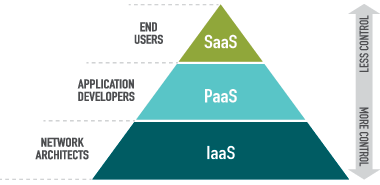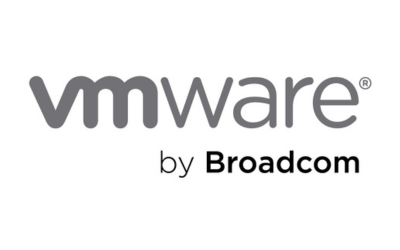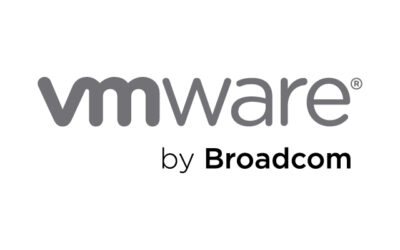When it comes to the IT industry – the clue’s in the name: they love abbreviations, and don’t always take the time to explain them. But if you’ve heard your IT team talking about IaaS (eye-ass), PaaS (pass), and SaaS (sass), these aren’t Klingon words, they’re actually crucial acronyms for understanding public cloud computing.
They stand for Infrastructure -, Platform-, and Software as a Service, and describe the level of service purchased from an IT system supplier, specifically they describe how a public cloud platform has been set up.
Infrastructure as a Service
IaaS is when you rent hardware – CPU, hard disk space, and RAM – from a supplier, allowing you to build and operate your cloud precisely as you want. Examples of IaaS include Google Compute Engine and Microsoft Azure.
In terms of sitting at a desk: IaaS is the equivalent of the PC you are turning on and using.
IaaS gives you a massive amount of control, as you can design and operate your cloud with a bespoke fit for your company. This is ideal for larger companies with the requirement and capability for building a private cloud.
However, it does require you to have a technical team, who are responsible for operating and updating the cloud, which is a costly commitment. It also means that if the software you’ve built goes wrong, you are responsible for repairing it.
Platform as a Service
PaaS is an operating system that will host applications for you, allowing you to build a cloud out of existing software programmes, now compiled together. Examples of Paas include Google App Engine and AWS Elastic Beanstalk.
In terms of sitting at a desk: Paas is the equivalent of the Windows operating system, allowing you to customise what’s on your computer, but not fundamentally change how the computer operates.
PaaS is ideal for software developers, as you can incorporate together existing code, without the commitment to building the cloud from scratch like you would have to do with IaaS.
However, PaaS does give you less control over the foundation of your business cloud than IaaS does. You also still need someone fairly technical to be responsible for operating your PaaS.
Software as a Service
SaaS is ready built and ready to use programmes, which allow you some personalisation, but you are unable to modify how the software operates. Examples of SaaS include: Office 365, Google Docs, Salesforce, Dropbox, Zendesk, Docusign, Slack, and lots of others.
In terms of sitting at a desk: Saas is the equivalent of an application you’ve installed, like Office 365.
SaaS applications are designed with end-users in mind so, typically, no technical skill is required to operate them. Also, SaaS data is stored in the supplier’s cloud, so no risk of running out of disk space (unless you have a storage allowance).
However, SaaS gives you the least control over the software, so if your company has unique needs, you would be unable to build a cloud to cater for those. You also have no access to the infrastructure, so if the cloud goes down, you will be reliant on your provider to fix the problem.

What is the best option between IaaS, PaaS, and SaaS?
Since different companies have different capabilities and requirements, there is no one-size-fits-all option regarding cloud. Generally speaking, you get more control as you go for the more technical option, so SaaS gives you the least control, PaaS is in the middle, and IaaS gives you the most control.
For a larger company with a technical team ready to go, then IaaS is likely the best option due to their ability to customise it and build a private business cloud perfectly suited for them. If a company is smaller than that, PaaS or Saas is probably best, but you will need to weigh up your budget and technical expertise to figure out which is the right cloud option for you.
Take the next step:
If you’re unsure of what platform would be best for your company’s IT systems, Redcentric are equipped to offer a full range of services, including IaaS, PaaS, and Saas, as well as private or hybrid cloud, and colocation services. We have a long history of advising clients and helping them find the right solution for their specific business, as well as transitioning them through their digital transformation from one platform to another.



